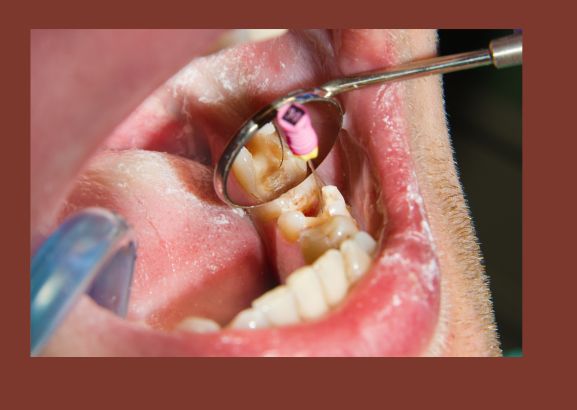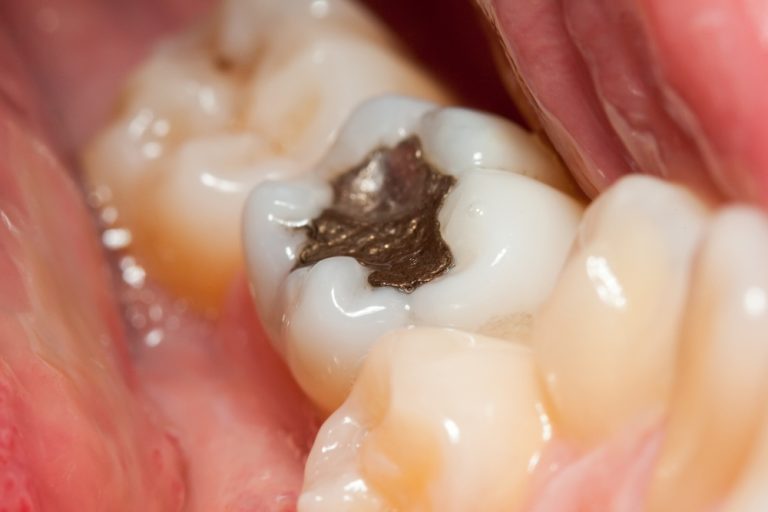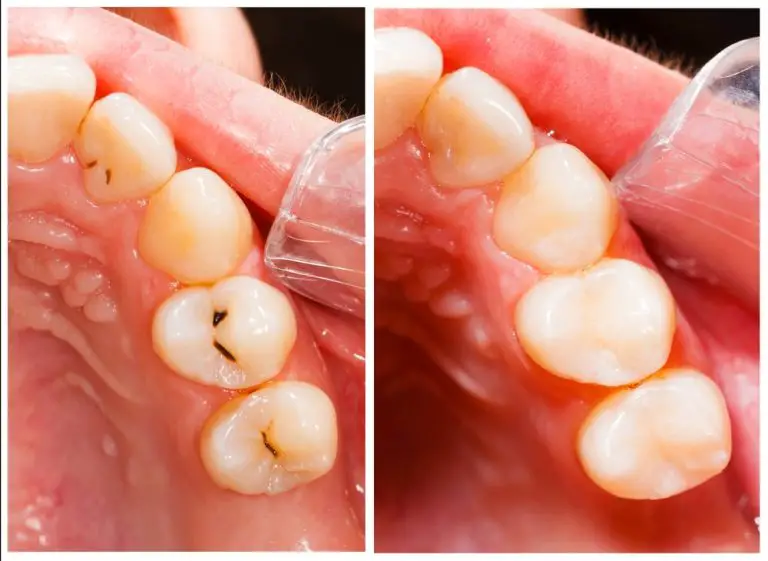Last Updated on 3 weeks by DR. ALBIN SIPES
Replacing fillings does not damage teeth, as it helps to restore and strengthen the affected tooth structure. This procedure is necessary when fillings become worn, broken, or decayed.
By replacing old fillings, dental professionals can ensure teeth’ continued health and integrity. Maintaining oral health is essential for overall well-being. One aspect of dental care that many people undergo is the replacement of dental fillings.
Fillings are crucial in protecting and restoring teeth affected by cavities or decay. Over time, fillings can deteriorate, break, or become worn out due to normal wear and tear, which may require replacement. However, some individuals may have concerns about whether replacing fillings can damage their teeth. We will explore this topic to understand whether the process of replacing fillings causes any harm to teeth. We will delve into the reasons for filling replacements and shed light on how this procedure aims to maintain the health and strength of teeth.
The Common Belief
The common belief is that replacing fillings can cause damage to teeth. Old fillings, in particular, are viewed as potentially harmful. However, it is essential to note that this belief may only partially be accurate. While some risks can be associated with replacing fillings, such as the possibility of weakening the tooth structure, modern techniques and materials have significantly minimized these concerns.
Dentists now utilize advanced procedures to ensure the tooth is prepared correctly before replacing the filling, reducing potential damage. Additionally, tooth-colored composite fillings have become more prevalent, further reducing the risk of damage. It is always advisable to consult with a dental professional to assess the condition of your fillings and determine the best course of action for your oral health.
The Truth Unveiled
The truth about whether replacing fillings damages teeth lies in understanding their impact and debunking misconceptions. Dental professionals play a crucial role in minimizing any potential damage. They ensure safe and proper procedures, aiming to preserve tooth structure. Forget the misconception that filling replacements permanently harm teeth.
Instead, consider the benefits of modern techniques and materials that can enhance dental health. By dispelling these myths, patients can make informed decisions about their oral care, knowing that replacing fillings can be a necessary and beneficial step. With the guidance of dental professionals, individuals can maintain healthy teeth and prevent further dental issues.
Trust the expertise of dental professionals in preserving your dental health and seek their advice when considering filling replacements. Remember, they aim to support your well-being and maintain your beautiful smile.
The Process Of Replacing Fillings
Replacing fillings can sometimes cause damage to teeth, but understanding the process can help alleviate concerns. The step-by-step procedure involves carefully removing the old filling and preparing the tooth for a new one. Anesthesia is often used to minimize discomfort during the process.
Exploring the option of anesthesia can help patients feel more at ease. Advanced techniques are also utilized to minimize potential damage, such as using adhesive materials that bond better with the tooth structure. Additionally, dentists may use isolation techniques to protect surrounding teeth and gums during the procedure.
By following these protocols, the risk of damage can be significantly reduced. Overall, replacing fillings is a standard dental procedure that, when carried out correctly, can restore the health and functionality of the tooth without causing extensive damage.
Factors Influencing Damage
Replacing fillings may or may not damage teeth depending on various factors. Factors that influence damage include the patient’s oral health, the filling material used, and potential risks and complications associated with the procedure. Examining the significance of a patient’s oral health before considering replacing fillings is crucial.
Additionally, the impact of the chosen filling material should be considered to minimize potential damage. Identifying potential risks and complications beforehand allows for necessary precautions to be taken. Careful attention to these factors can help mitigate the risk of damaging teeth when replacing fillings.
Patients can ensure the best outcome for their dental fillings by prioritizing oral health and making informed decisions.
Preemptive Measures
Proper oral hygiene practices are crucial in minimizing the potential damage to teeth that could lead to filling replacements. Regular brushing and flossing are essential in maintaining dental health. Additionally, visiting dental professionals for regular check-ups and cleanings is vital.
By doing so, they can detect any potential issues early on and provide necessary guidance to avoid further damage. Making informed decisions with dental professionals is another critical aspect. You can discuss the best options for maintaining dental health, such as dietary changes and preventive treatments.
Following these preventive measures can significantly reduce the need for filling replacements and ensure long-lasting oral health. So, take charge of your dental well-being and prioritize a comprehensive oral care routine.
Ensuring Successful Filling Replacements
Replacing fillings may or may not damage teeth. Regular check-ups and follow-ups are crucial to ensure success. Choosing the right dental professional is vital for a successful replacement. Maintaining a healthy diet is essential for supporting dental health. Starting sentences differently helps to keep the reader engaged.
Frequently Asked Questions For Does Replacing Fillings Damage Teeth
Does Replacing Fillings Damage Teeth?
Replacing fillings does not damage teeth as long as it is done by a skilled dentist. In fact, it can improve dental health by removing old, worn-out fillings and replacing them with new, more durable ones. However, if the tooth structure is weakened or damaged during the process, it may require additional treatment to restore its strength.
Conclusion
Replacing fillings can damage teeth if not performed by a skilled and experienced dentist. It is vital to ensure the filling is removed correctly and the tooth is adequately assessed before placing a new filling. If the dentist fails to remove all the decay or sufficiently prepare the tooth, it can lead to further damage or complications.
Additionally, choosing the right type of filling material is crucial as some materials may cause irritation or allergic reactions. It is recommended to consult with a professional dentist who can assess the condition of your fillings and provide appropriate treatment options.
Regular dental check-ups and maintaining good oral hygiene practices are vital to preventing the need for frequent filling replacements and potential damage to your teeth. Remember, your dental health is in your hands. Take care of your teeth and choose your dentist wisely.





